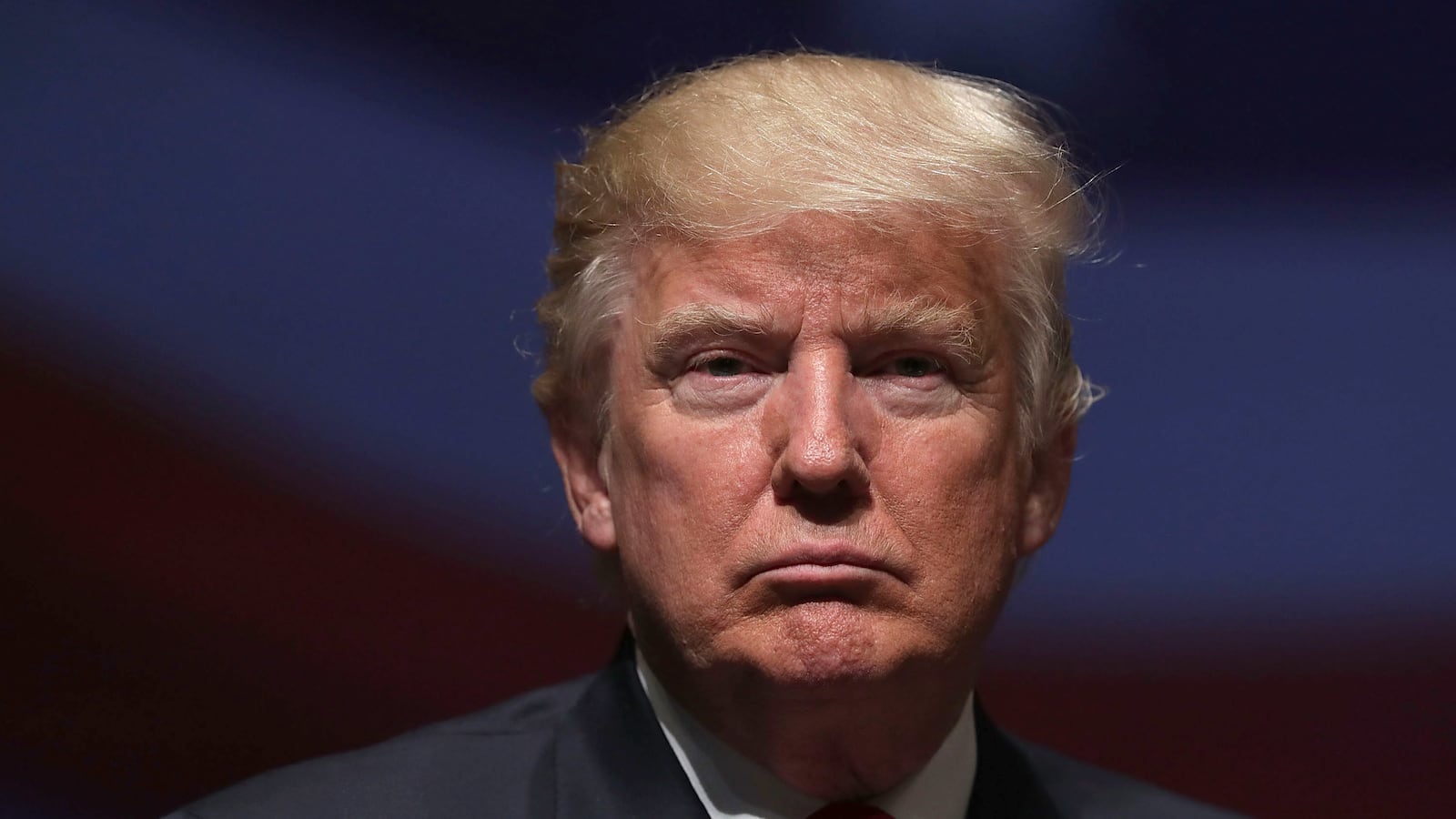Donald Trump can continue to lean on the executive power he once had as president as he attempts to wave away a lawsuit that accuses him of raping advice columnist E. Jean Carroll 25 years ago.
Although the Justice Department is now under the control of President Joe Biden, on Monday the DOJ continued the legal effort it started under the previous president, arguing that Trump was merely another employee of the federal government when he essentially called Carroll a liar. Still treating Trump as a federal employee would grant him some degree of immunity for his actions.
“The President is an ‘employee of the government,’” the Justice Department asserted in its brief on Monday evening. And the current law keeps giving Trump immunity and government-funded legal help because “nothing in the text, purpose, or history of the statutes suggests that they exempt from their coverage the President of the United States.”
The decision to continue down this path is significant, as it threatens to halt the case from moving forward.
Carroll’s lawyer, Roberta Kaplan, said in a statement on Monday night, “The DOJ’s position is not only legally wrong, it is morally wrong since it would give federal officials free license to cover up private sexual misconduct by publicly brutalizing any woman who has the courage to come forward.”
Kaplan added that Trump’s crude denials were “not the official act of an American president” and thus should not be legally protected. She noted that the final decision will still be up to the appellate judges of the Second Circuit.
In June 2019, New York magazine published an excerpt of Carroll’s book in which she accused Trump of raping her inside a dressing room at the high-end Bergdorf Goodman department store in Manhattan sometime around 1995. Trump denied ever meeting Carroll, then later told The Hill: “Number one, she’s not my type. Number two, it never happened.” Carroll sued for defamation in New York state court.
The Justice Department, then led by Trump loyalist Bill Barr, moved the case to federal court, where it tried to push a legal theory arguing that the government can’t be sued for libel or slander and that therefore Trump is shielded because he’s a government employee—and was speaking out against Carroll in his official capacity as president.
U.S. District Judge Lewis A. Kaplan rejected the idea that the lawsuit is “virtually identical” to a postal worker getting sued “for causing a car accident while delivering the mail.”
“The President of the United States is not an ‘employee of the Government’... even if he were such an ‘employee,’ President Trump's allegedly defamatory statements concerning Ms. Carroll would not have been within the scope of his employment,” the judge wrote in an October 2020 opinion.
Barr’s Justice Department appealed that decision to the Second Circuit Court, as did Trump’s own lawyers, led by Marc E. Kasowitz. Although Carroll sued Trump as an individual—as opposed to suing him in his official role as president—the Justice Department and Kasowitz both sought to swap him out as the defendant in the case with the U.S. government, putting the burden of his defense on taxpayers.
Kasowitz did not immediately respond to a request for comment.
In a filing made during Trump’s last week in office, the Justice Department argued that Trump was entitled to immunity and acted “within the scope of his office when, in this context, he seeks to defuse personal issues that threaten to impair his ability to achieve his agenda.”
Until Monday night, it was unclear how the DOJ would fall on this issue. In its filing, the Justice Department repeatedly took pains to distance itself from the offensive, boisterous former commander in chief. However, it still chose not to deviate from its prior stance.
“The government does not dispute that many of the statements alleged in the complaint were unwarranted and disrespectful. But that is not the relevant inquiry,” the filing said.
Four DOJ lawyers signed off on the filing, including acting Assistant Attorney General Brian M. Boynton and lawyers Mark R. Freeman, Mark B. Stern, and Joshua M. Salzman.
“Speaking to the public and the press on matters of public concern is undoubtedly part of an elected official’s job,” they wrote, adding that “the specific conduct need not constitute an act of ‘public service’ to be within scope” of employment that would grant him the federal government’s protection.
Several organizations that provide services to rape survivors joined in support of Carroll in the appellate case, including The Rape, Abuse & Incest National Network, Safe Horizon, and the Time’s Up Foundation. In court, the group argued that granting Trump government protection “would give license to all federal officials to slander and defame their victims with impunity.”
“When powerful offenders are afforded a public forum, and are allowed to manipulate public opinion by shaming, degrading, lying, and attacking their victims’ credibility, all victims suffer,” they wrote in their joint amicus brief.
Zoe Salzman, the attorney representing that group, told The Daily Beast: “It is disappointing to see this administration continue to defend Trump’s bankrupt legal position. To agree with DOJ in this case is to send a chilling message to survivors of sexual assault and discourage them from holding their assailants accountable. The Second Circuit should affirm the District Court’s well-reasoned decision.”
Despite the good legal news for Trump on Monday, the former president faces a mounting number of other legal challenges, including criminal inquiries.
The Manhattan district attorney and the New York state attorney general are both investigating whether Trump and his company lied about asset values to dodge taxes or commit bank fraud. In Atlanta, the Fulton County district attorney is exploring how Trump and his team interfered with the election there and pressured officials as they recounted votes. And in the nation’s capital, the District of Columbia’s district attorney is investigating the Trump presidential inauguration committee’s misuse of charitable funds.






